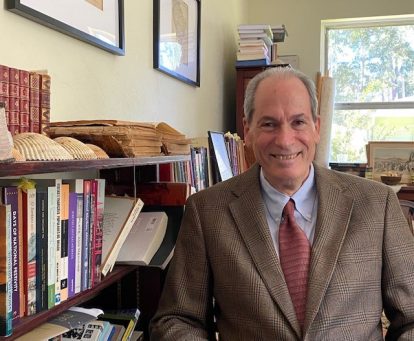Jeffrey D. Needell is a historian of Latin America, specializing in Brazilian history. He received his Ph.D. (Latin American and European cultural history) from Stanford University in 1982, his M.A. (Latin American and colonial African history) from Yale University in 1977, and his A.B. (history) from the University of California at Berkeley in 1974. He joined the Department of History in 1987 after teaching at the University of Oregon in 1982-1985 and serving as an administrator in the Latin American Program of the Woodrow Wilson International Center for Scholars (Washington, D.C.) in 1985-1987. Needell has published more than thirty articles and anthology chapters on urban cultural history, intellectual history, political history, and on his current research interests: the Brazilian monarchy and slavery, Brazilian abolitionism, Afro-Brazilian political mobilization in nineteenth-century Rio de Janeiro, and the movement for Brazilian abolition (1879-1888). Much of his research has been supported by fellowships from Fulbright-Hays, the Social Science Research Council, the National Endowment for the Humanities, and the American Philosophical Society. He is the author of A Tropical Belle Epoque: Elite Society and Culture in Turn-of-the-Century Rio de Janeiro (Cambridge University Press, 1987; translated and published in Brazil, 1993, and Argentina, 2013) and The Party of Order: The Conservatives, the State, and Slavery in the Brazilian Monarchy, 1831-1871 (Stanford University Press, 2006). The Party of Order won the Warren Dean Memorial Prize from the Conference for Latin American History and the Roberto Reis Book Award from the Brazilian Studies Association. He edited Emergent Brazil: Key Perspectives on a New Global Power University Press of Florida, 2015). His most recent book is The Sacred Cause: The Abolitionist Movement, Afro-Brazilian Mobilization, and Imperial Politics in Rio de Janeiro, published by Stanford University Press in early 2020. Needell teaches general courses on the history of Latin America after 1750, more specific courses on the history of Brazil and the history of Amazonia, and the Department’s graduate seminar on Brazilian historiography.
